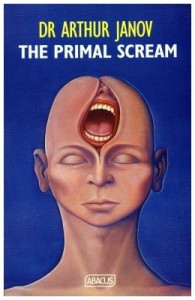More Free CBT in L.A.
This Sunday, July 11th, 2-6pm, at SCCC. From the Free CBT Clinic’s Facebook page:
WHAT’S THE CATCH?
There is none. This is a free service of The Southern California Counseling Center to the community for anyone who is interested in finding out what therapy is like or specifically what Cognitive Behavioral Therapy (CBT) is all about.
You will spend approximately 50 minutes with an experienced mental health counselor, one-on-one, completely confidential…
The Southern California Counseling Center5615 W. Pico Blvd, Los Angeles, CA 90019
(323) 937-1344
Breakup Predictor
A study finds a new way t o predict whether or not a couple is going to stay together–word matching.
The researchers found that volunteers who found it easy to associate their partner with bad things and difficult to associate the partner with good things were more likely to separate over the next year.
Extinction Burst
A new post at a new favorite, You Are Not So Smart, about behaviorism, B.F. Skinner, and the extinction burst. The post includes this pigeon video, embedded here for those in a video-only mood:
Sex, Drugs, Exercise, Fertility, CBT, and Shrimp
Stand-outs this morning from around the web…
ScienceDaily: Combining sex and drugs reduces rock and roll
WebMD: Getting Pregnant: Easy Ways To Encourage Fertility
PsychCentral: Therapist Competency Important for Treatment Success
ScienceDaily: Antidepressants make shrimps see the light
Ending Relationship Like Kicking Drugs
PsychCentral: Relationship Breakup Similar to Addiction Withdrawal
Rejection by a romantic partner is a bitter pill. New research suggests the trauma is severe because love rejection affects primitive areas of the brain associated with motivation, reward and addiction cravings…
Survey: Talk Therapy Helps
Results from a giant Consumer Reports mental health survey, reported earlier, have been posted. Here are the bullet points they came up with:
Talk therapy helps
Some drugs have an edge
Anxiety rises [is on the rise, that is, since 2004]
Side effects shift
Type of therapist doesn’t matter
Details on the site.
Misconception/Truth
Blog to check out: Journalist David McRaney takes in-depth looks at lots of psych-related questions on You Are Not So Smart. Each long post begins with a common misconception and a corrective truth, with research to back it up. From a post about hindsight bias:
The Misconception: After you learn something new, you remember how you were once ignorant or wrong.
The Truth: You often look back on the things you’ve just learned and assume you knew them or believed them all along.
Enjoy.
Friends Good for You (Baboon Edition)
ScienceDaily: For female baboons, too, it’s good to have friends:
Female baboons that maintain closer ties with other members of their troop live substantially longer than do those whose social bonds are less stable, a recent study has found. The researchers say that the findings add to evidence in animals from mice to humans that social bonds have real adaptive value.
Exercise and Mental Health
NYT reports study about Activity and Mental Health in Women:
People who are physically active appear to be at lower risk for cognitive impairment late in life, and for women, a new study suggests, physical activity during the teenage years may provide the greatest benefit.
Let It Out
 Benedict Carey looks at The Benefits of Blowing Your Top in the NYT. One upside to emotional expression (according to a study), a better social life:
Benedict Carey looks at The Benefits of Blowing Your Top in the NYT. One upside to emotional expression (according to a study), a better social life:
[P]sychologists followed 278 men and women as they entered college, giving questionnaires and conducting interviews. Those who scored highest on measures of emotion suppression had the hardest time making friends.